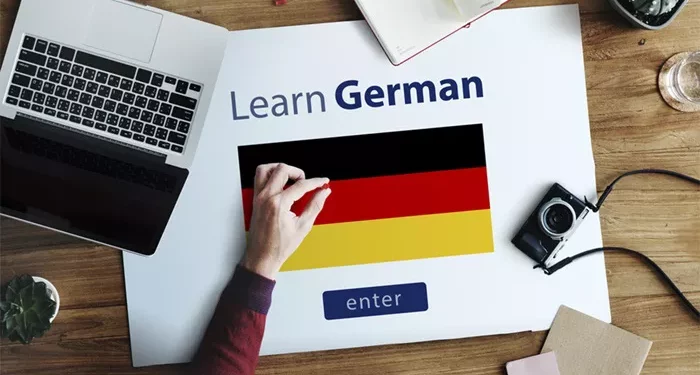Learning a new language is a unique journey that varies from person to person. When it comes to German, the time it takes to achieve proficiency can depend on several factors such as prior experience with learning languages, the methods used, the intensity of study, and the level of immersion in the language. Based on personal experiences and general observations, this article will explore the different aspects of learning German, provide insights into effective strategies, and offer a comprehensive conclusion on the time required to learn German.
Initial Stages of Learning German
The initial stage of learning German often involves getting familiar with basic vocabulary, grammar, and pronunciation. For someone starting from scratch, this phase can take about three to six months of consistent study. During this time, learners usually focus on building a foundation in the language by learning common phrases, basic sentence structures, and essential grammar rules. It’s important to practice regularly, whether through language classes, online courses, or self-study materials.
Intermediate Proficiency
Reaching an intermediate level of proficiency in German typically takes around one to two years of dedicated study. At this stage, learners start to expand their vocabulary, improve their grammar, and become more comfortable with conversational German. Intermediate learners often engage in more complex activities such as reading simple texts, listening to German audio, and having basic conversations with native speakers. Immersion plays a significant role in this phase, as frequent exposure to the language helps reinforce learning and improve fluency.
Advanced Proficiency
Achieving advanced proficiency in German can take several years, often ranging from three to five years of consistent study and practice. Advanced learners are expected to have a strong grasp of grammar, an extensive vocabulary, and the ability to understand and participate in complex conversations. This level of proficiency allows individuals to read and comprehend advanced texts, watch German films and TV shows without subtitles, and engage in in-depth discussions on various topics. Advanced learners benefit greatly from immersion experiences, such as living in a German-speaking country, attending language immersion programs, or regularly interacting with native speakers.
Full Fluency
Full fluency in German, where one can effortlessly understand and use the language in any context, may take five to ten years or more, depending on the individual’s dedication and opportunities for immersion. Fluency involves not only mastering the language’s grammar and vocabulary but also understanding cultural nuances, idiomatic expressions, and regional dialects. Achieving fluency often requires long-term exposure to the language and a deep cultural immersion.
See Also: Do You Need to Speak German to Study in Germany?
Factors Influencing the Learning Process
Several factors can influence the time it takes to learn German:
Prior Language Experience: Individuals who have previously learned another language, especially one similar to German (like Dutch or English), may find it easier and quicker to learn German.
Learning Methods: The effectiveness of the learning methods used can significantly impact the speed of learning. Structured language courses, interactive online platforms, and regular practice with native speakers tend to yield better results.
Consistency and Practice: Regular and consistent practice is crucial for language learning. Daily exposure to the language, whether through studying, speaking, listening, or reading, helps reinforce learning and improve retention.
Immersion: Immersion in a German-speaking environment accelerates the learning process. Living in Germany or a German-speaking country, participating in language immersion programs, or regularly interacting with native speakers can greatly enhance language skills.
Motivation and Dedication: The learner’s motivation and dedication play a vital role in the learning process. A high level of commitment, coupled with a genuine interest in the language and culture, can lead to faster and more effective learning.
Conclusion
In conclusion, the time it takes to learn German varies widely depending on individual factors and circumstances. On average, reaching a basic level of proficiency can take three to six months, intermediate proficiency may take one to two years, advanced proficiency can require three to five years, and full fluency might take five to ten years or more. The key to successful language learning lies in consistent practice, effective learning methods, immersion experiences, and a strong motivation to learn. By dedicating time and effort, anyone can achieve proficiency in German and enjoy the many benefits that come with knowing a second language.
FAQs
Can I learn German faster if I already know another language?
Yes, prior experience with learning another language, especially one similar to German, can make the process faster and easier. Your familiarity with language learning strategies and grammar concepts can be beneficial.
Is it necessary to live in Germany to become fluent in German?
While living in Germany or a German-speaking country can significantly accelerate the learning process through immersion, it is not strictly necessary. With the right resources and consistent practice, you can achieve fluency from anywhere in the world.
What are some effective methods for learning German?
Effective methods for learning German include structured language courses, interactive online platforms, language exchange programs, regular practice with native speakers, immersion experiences, and using multimedia resources such as German films, music, and books.
Related topics:
- Can We Go to Germany Without IELTS?
- Local High School Student Awarded Scholarship for Exchange Program in Germany
- Overview of Tuition-Free Universities in Germany



















